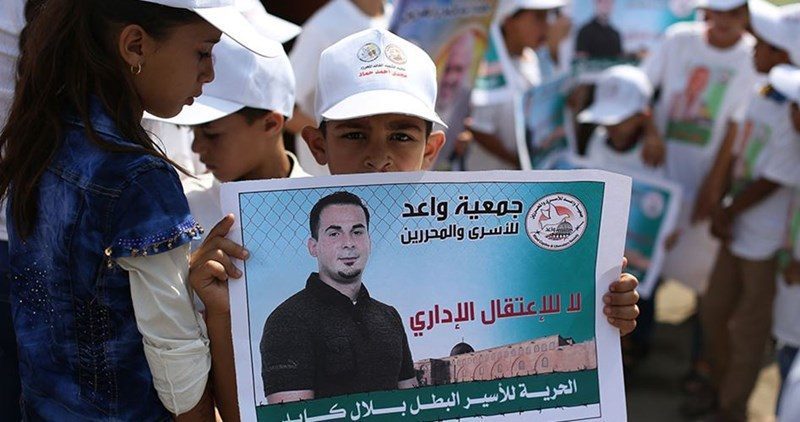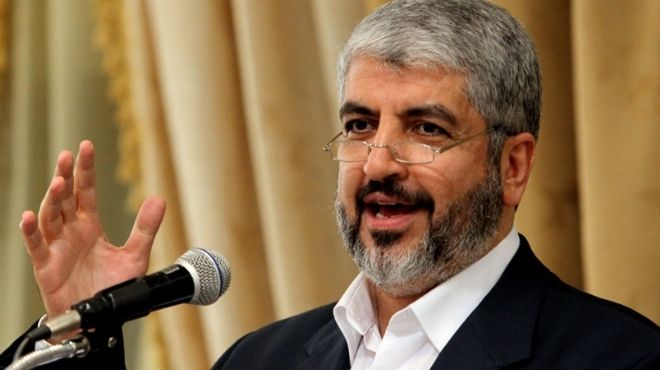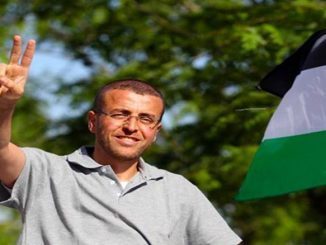
An Israeli court Friday rejected a request by hunger-striking Palestinian prisoner Bilal Kayid to remove handcuffs which have strapped him to a hospital bed in Israel’s Barzilai Hospital in Ashkelon since last month when he was hospitalized after his health deteriorated.
An Israeli court in Beersheba reportedly rejected Kayid’s request for removing the handcuffs, including allowing a doctor from outside the hospital to check on his health condition, according to Israeli media. The request was submitted by his lawyers, representing Physicians for Human Rights, to the court on Thursday
Kayid’s lawyer is set to present an appeal against the Beersheba court decision to the Israeli Supreme Court, Israeli media reported.
Israel’s Supreme Court has set a hearing session on October 5 regarding an appeal presented by Kayid’s lawyers challenging his sentence.
The Palestinian Prisoner Center for Studies (PPCS) has strongly denounced the Israeli court decision to hold a hearing for hunger-striking prisoner Bilal Kayed in two months from now, describing it as a “decision to kill him.” Spokesman for the center Riyadh al-Ashqar stated on Friday that prisoner Kayed entered the third month of his hunger strike, amid a sharp decline in his health condition.
Ashqar added that the Israeli higher court deliberately ignored the health condition of the prisoner and decided to look into the petition filed against his administrative detention next October, which reflected an intent to eliminate him. “Could his body stand another two months of hunger strike?” the spokesman questioned, warning that this might lead to his certain death.
In a statement issued on Friday by the Popular Front for the Liberation of Palestine (PFLP), the left-wing political group Kayid is affiliated with, the movement said Israel was fully responsible for keeping Kayid in “inhumane conditions,” while continuing to cuff his hands and legs despite his critical health condition.
The Israel Prison Service (IPS) told Israeli newspaper Haaretz last week that Kayid remained handcuffed to his bed in order to “prevent an attempt to free him.”
Kayid, who entered the 60th day of his hunger strike on Friday, is a prominent member of the PFLP. After being sentenced to six months of administrative detention — an Israeli policy of internment without charge or trial — on the day he was expected to be released from a 14-year prison sentence, he declared an open hunger strike.
PFLP-affiliated prisoners from across Israel’s prisons launched solidarity hunger strikes to support Kayid, with more than 80 Palestinian prisoners participating as of Sunday.
Kayid’s health has severely suffered over previous weeks, with the Palestinian Ministry of Health warning last week that his health was worsening, as doctors warned of “sudden death.”
Kayid is one of the most high-profile hunger strikers since Palestinian journalist Muhammad al-Qiq came near death during a 94-day hunger strike before he was finally released in May.
Other Palestinian prisoners also joined the strike in protest of being placed in administrative detention: Muhammad and Mahmoud Balboul have been on hunger strike for almost 40 days, prominent Palestinian journalist Omar Nazzal declared his strike on August 4, while Ayyad al-Hreimi and Malik al-Qadi are also on hunger strike in protest of being held without charge or trial.
Israel’s policy of administrative detention, almost exclusively used against Palestinians, has been widely criticized by rights group which have accused Israel of using the policy to erode Palestinian political and social life by detaining scores of Palestinians without proof of wrongdoing
Walid Masalmeh is also on hunger strike in protest of being held in solitary confinement.
The large-scale solidarity movement among prisoners has resulted in an equally massive crackdown on mostly PFLP prisoners by the IPS, which has conducted multiple raids, cell block closures, confiscations of personal property, and transfers of detainees in attempts to quell the strikes.
Israeli authorities have also blocked hunger-striking prisoners from visiting their lawyers, claiming their health conditions could not permit the visitations.
While IPS in Israel’s Mehgiddo prison banend 15 hunger-striking prisoners from receiving visits from their lawyers, IPS also reportedly banned 35 other hunger-striking prisoners from receiving lawyer visits at Israel’s Gilboa prison for the same reasons, while an order was also issued to ban lawyers from visiting hunger-striking Palestinian prisoners at Israel’s Jalbou prison.
Meanwhile, Israeli authorities have recently banned at least 54 Palestinians from family visitations. IPS has repeatedly denied family visitation for scores of Palestinian prisoners held in in prisons across the state of Israel, and some families have reported being held at Israeli checkpoints and forced to return to their homes in the occupied territory, despite being granted visitation permits.
The incidents came amid widespread protest over the ICRC’s recent cuts to family visitations, reducing arranged visits for male Palestinian prisoners from two days a month to just one.
However, the Palestinian Authority announced its plans on Tuesday to cover the financial expenses of the second family visit for Palestinian prisoners, while ICRC would still be responsible for arranging the visits with Israeli authorities.



